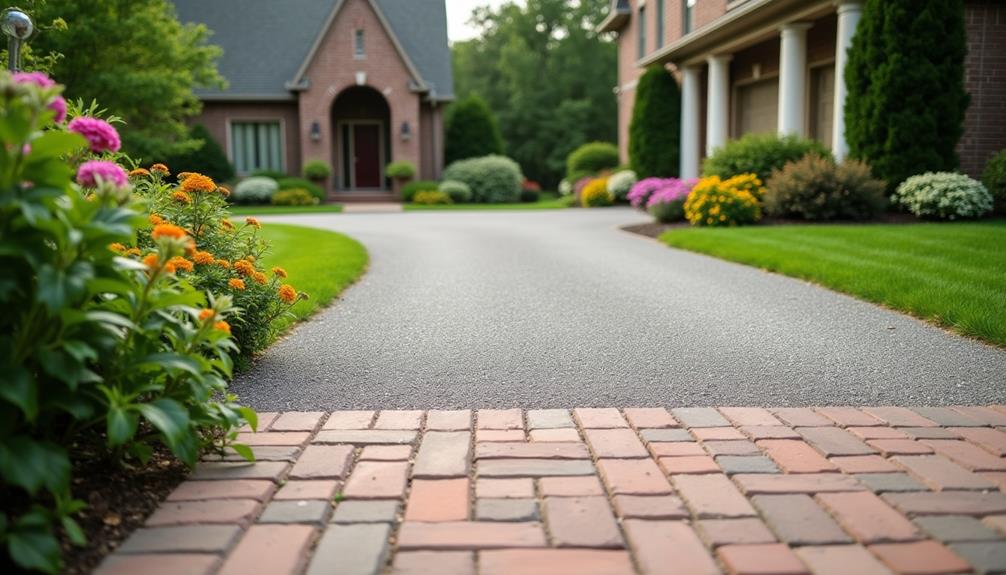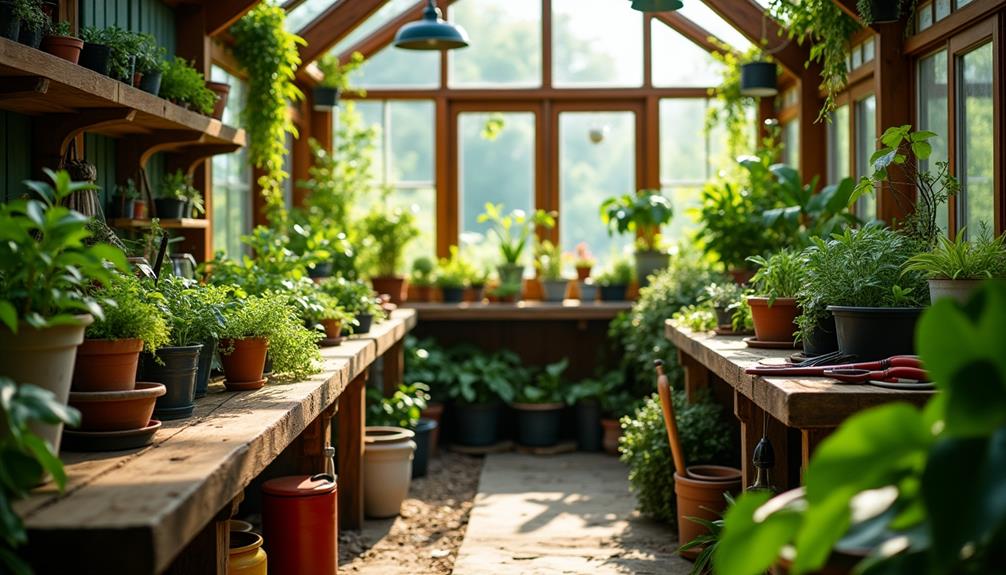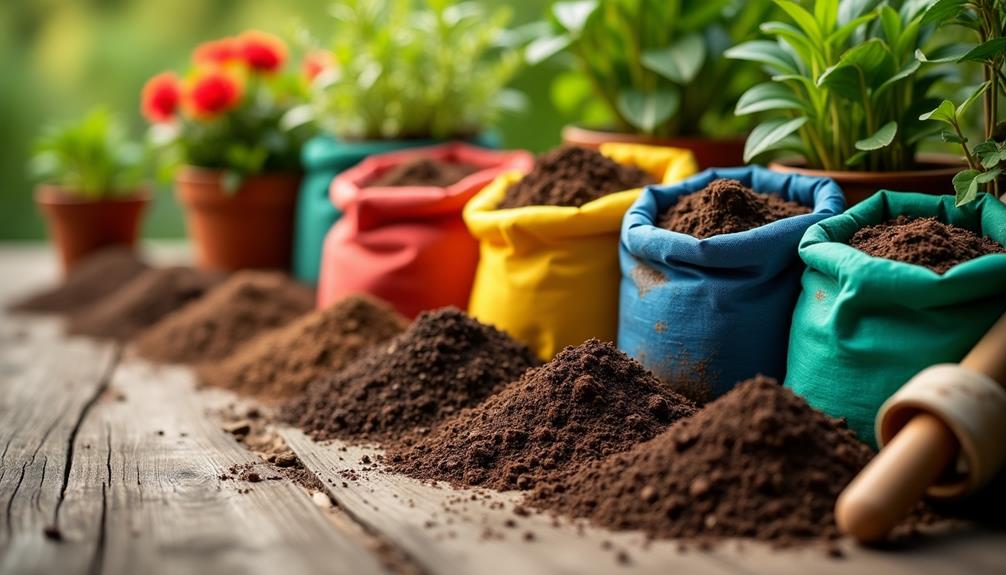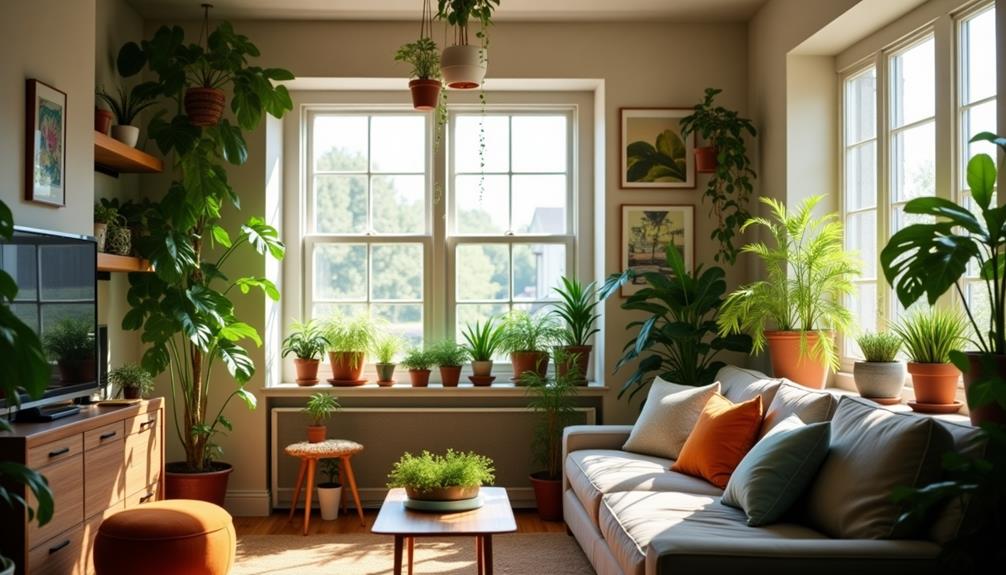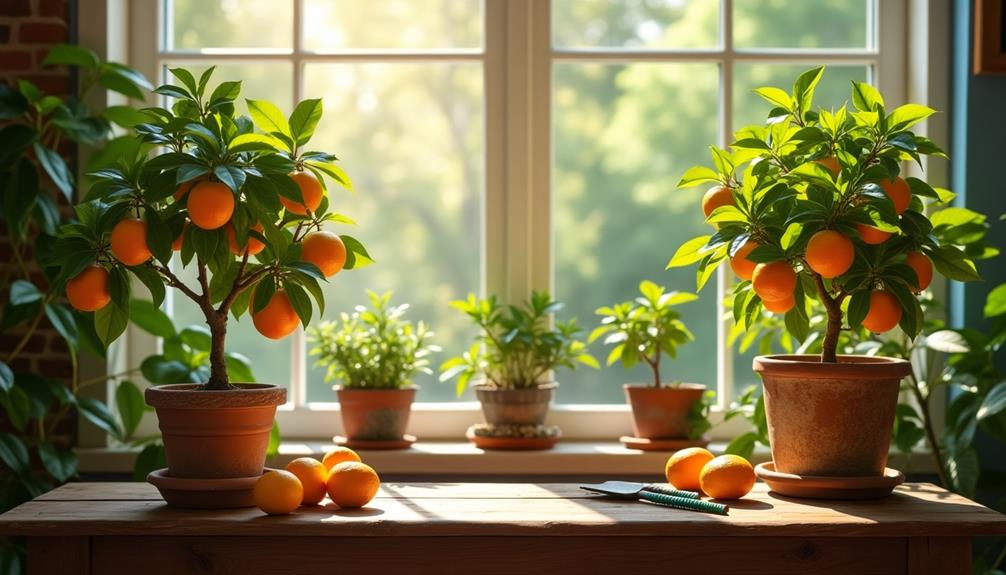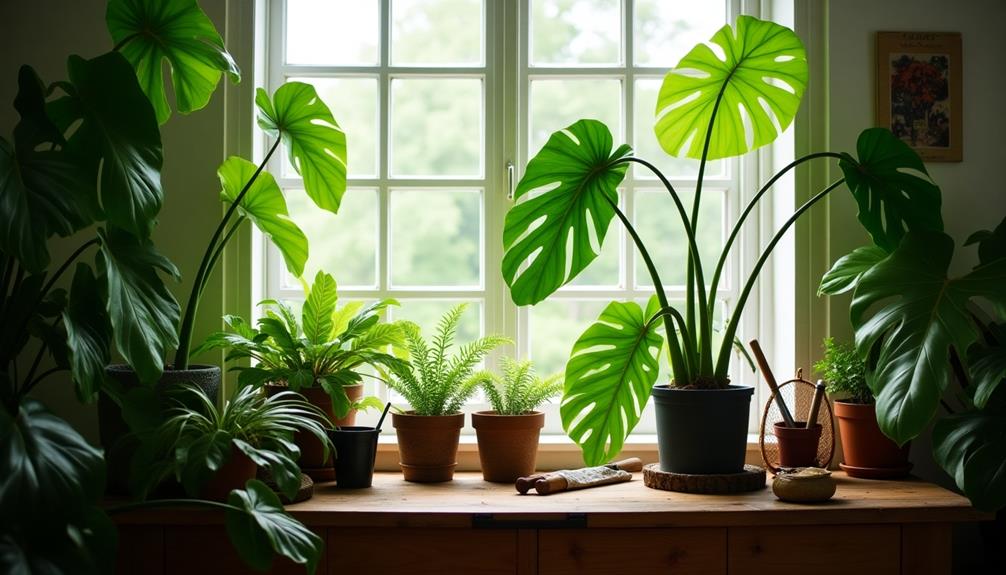When you're selecting the right driveway material for your home, you're faced with a range of options that each have their own benefits and drawbacks. You might consider factors like budget, aesthetics, and maintenance requirements, but it can be tricky to find the perfect fit. For instance, while concrete offers durability, asphalt might be better for heavy traffic. Then there are pavers and gravel to think about, not to mention eco-friendly alternatives that could align with your values. The key is understanding how these choices impact not just your driveway but also your home's overall appeal.
Overview of Driveway Materials
When it comes to choosing the right driveway material, understanding your options is crucial. You'll find a range of materials available, each with its unique advantages and challenges. Recent driveway trends highlight a growing interest in both traditional and modern materials, allowing you to create a look that complements your home.
Concrete is a popular choice due to its durability and low maintenance, while pavers offer versatility in design and aesthetics. If you're looking for something eco-friendly, permeable pavers are gaining traction, allowing water to seep through and reducing runoff.
On the other hand, gravel driveways provide an affordable and rustic option, though they may require more upkeep.
Material comparisons show that asphalt is often favored for its smooth surface and quick installation, but it can crack over time.
As you evaluate your options, consider factors like climate, traffic, and budget. Ultimately, the right choice for your driveway will depend on your lifestyle and aesthetic preferences, ensuring it meets both functional and visual needs.
Asphalt Driveways
Asphalt driveways stand out as a practical option for many homeowners seeking a balance of durability and cost-effectiveness. One of the key asphalt benefits is its affordability compared to other driveway materials.
You'll find that asphalt installation is typically quicker and less labor-intensive, which can save you both time and money.
Asphalt provides a smooth surface that's easy to maintain, making it an attractive choice. It can withstand heavy traffic, making it ideal for families with multiple vehicles.
Plus, it's resistant to cracking in warmer climates, ensuring longevity.
When considering aesthetics, you can easily enhance the look of your asphalt driveway with sealcoating, which not only improves its appearance but also protects it from the elements.
Regular maintenance, including sealing every few years, will keep your driveway in top shape and extend its lifespan.
Concrete Driveways
When considering concrete driveways, you'll appreciate their impressive durability and longevity.
Not only do they withstand heavy loads, but they also require less frequent maintenance compared to other materials.
However, it's important to weigh the initial costs and ongoing upkeep to see if it fits your budget.
Durability and Longevity
Concrete driveways stand out for their impressive durability and longevity, making them a popular choice for homeowners. When you invest in a concrete driveway, you're choosing a material that can withstand various weather conditions.
With excellent weather resistance, concrete can handle extreme temperatures, heavy rainfall, and even snow without significant damage.
In lifespan comparison to other driveway materials, such as asphalt or gravel, concrete typically lasts much longer. While asphalt may need replacement every 15 to 20 years, a well-installed concrete driveway can last 30 years or more with minimal wear and tear.
This longevity means fewer replacements and repairs over the years, ultimately saving you money and hassle.
Moreover, concrete's strength allows it to bear heavy loads, making it ideal for households with multiple vehicles or frequent heavy traffic.
It doesn't crack or break easily under pressure, which adds to its reliability.
Maintenance Requirements and Costs
While concrete driveways are known for their durability, they also come with specific maintenance requirements to keep them in top shape.
You'll need to perform seasonal maintenance, which includes inspecting for cracks and applying sealant every few years. This not only protects the surface from water damage but also enhances its longevity.
In terms of costs, sealing your driveway typically ranges from $0.50 to $1.50 per square foot, depending on where you live and the size of your driveway.
Regular cleaning with a pressure washer can help prevent stains, and this usually costs around $100 to $300, depending on the service provider.
When you do a cost comparison with other materials, concrete may initially seem more expensive; however, its long-term durability often makes it a more economical choice.
You'll spend less on repairs and replacements over time.
Paver Driveways
Paver driveways offer a blend of durability and aesthetic appeal, making them a popular choice for homeowners seeking to enhance their property's curb appeal.
With a variety of paver patterns and colors available, you can easily customize the look of your driveway to complement your home's architectural style. Whether you prefer a classic herringbone pattern or a modern circular design, the options are nearly limitless.
One of the biggest advantages of paver driveways is their ability to withstand heavy loads without cracking, unlike asphalt or concrete. They're also resistant to weather changes, which means you won't have to worry about extensive repairs.
Additionally, if a paver gets damaged, it can be easily replaced without having to redo the entire driveway.
When choosing your paver colors, consider how they'll blend with your home and landscaping. Earthy tones can create a warm, inviting look, while vibrant hues can make a bold statement.
Gravel Driveways
If you're looking for a cost-effective and versatile option, gravel driveways might be the perfect fit for you. They offer a unique charm and are available in various gravel types, allowing you to customize the look to match your home's aesthetic. From smooth river stones to rougher crushed gravel, you'll find a type that suits your style.
One of the major advantages of gravel installation is its simplicity. You can often undertake this project on your own, saving on labor costs. Just remember to prepare the area properly—clearing vegetation and leveling the ground is key to prevent shifting and erosion.
Additionally, gravel driveways can be easily maintained. If you notice any potholes or ruts, simply add more gravel and spread it evenly. This makes them not only cost-effective but also practical for homeowners who prefer low-maintenance options.
However, keep in mind that gravel driveways require regular upkeep to keep them looking their best. With the right gravel types and installation techniques, you can enjoy a beautiful and functional driveway that enhances your home's curb appeal.
Brick Driveways
When you consider brick driveways, you're looking at a blend of design versatility and timeless aesthetics.
They offer impressive durability, but you'll need to keep an eye on maintenance to ensure they last.
Plus, understanding the installation process can help you decide if this option fits your needs.
Design Versatility and Aesthetics
Brick driveways offer impressive design versatility and aesthetic appeal that can transform any home's exterior. When you choose a brick driveway, you're not just opting for a functional surface; you're making a statement.
The variety of color selection available allows you to complement your home's architecture and landscaping beautifully. You can choose from classic reds and browns to more modern hues, ensuring your driveway enhances your curb appeal.
Moreover, texture options add another layer of customization. Smooth bricks provide a sleek, contemporary look, while textured bricks can evoke a rustic charm. You can even mix different brick styles and colors to create unique patterns, such as herringbone or basketweave, giving your driveway a distinctive flair.
This versatility means that whether you have a traditional, modern, or eclectic home, a brick driveway can seamlessly blend with your design vision.
Plus, the timeless aesthetic of brick ensures that your driveway remains stylish for years to come. So, if you're looking to elevate your home's exterior, consider the endless possibilities a brick driveway provides.
Durability and Maintenance Needs
Choosing a brick driveway not only enhances your home's aesthetic but also offers remarkable durability.
Brick driveways are known for their impressive weather resistance, making them a great choice for various climates. Whether you face heavy rain, snow, or intense sun, brick can stand up to the elements without fading or cracking.
When it comes to load capacity, brick driveways can support the weight of vehicles without buckling or warping. Properly installed, they distribute weight evenly, ensuring longevity even with regular use.
While brick driveways are durable, they do require some maintenance. Periodic cleaning to remove debris and stains will keep them looking sharp.
You might also need to replace a few bricks over time due to wear or damage. Sealing the bricks every few years can enhance their weather resistance and help prevent moss or algae growth.
Installation Process Overview
Before you dive into installing a brick driveway, it's essential to understand the process involved. First, you'll need to gather your materials, including bricks, sand, and gravel.
Next, you'll want to outline your driveway's dimensions to help guide your work.
The preparation steps are crucial. Start by excavating the area to a depth of about 6-8 inches, ensuring a solid base for your bricks.
Then, lay down a layer of gravel for drainage, followed by a layer of sand which will help level the bricks.
Once your base is set, you can begin laying the bricks. Use various installation techniques, such as herringbone or basketweave patterns, to create an appealing design.
Lay each brick tightly against the next, ensuring there's no shifting over time.
After all bricks are in place, sweep sand into the joints to lock everything together and provide stability.
Eco-Friendly Options
As environmental concerns grow, more homeowners are seeking eco-friendly options for their driveways. You might want to consider materials that not only enhance your curb appeal but also reduce your carbon footprint.
One popular choice is permeable surfaces. These driveways allow water to drain through, reducing runoff and promoting groundwater recharge.
Another great option is using recycled materials. Reclaimed asphalt, for example, is a durable and sustainable choice that can significantly cut down on waste. You could also explore recycled concrete, which can create a unique and stylish look while being environmentally responsible.
If you're interested in a more natural appearance, consider gravel driveways made from recycled stone. They're easy to install, affordable, and provide excellent drainage.
When selecting your driveway material, think about how it aligns with your values and contributes to sustainability.
By choosing eco-friendly options, you're not just enhancing your home's appearance; you're also making a positive impact on the environment.
With so many recycled materials and permeable surfaces available, it's easier than ever to find an option that fits your style and eco-conscious goals.

